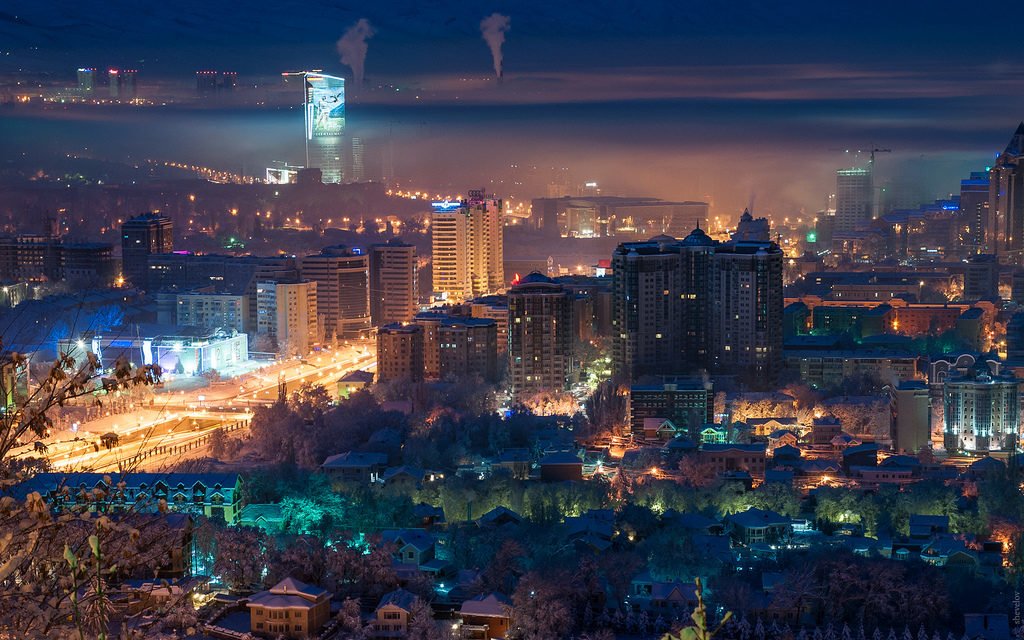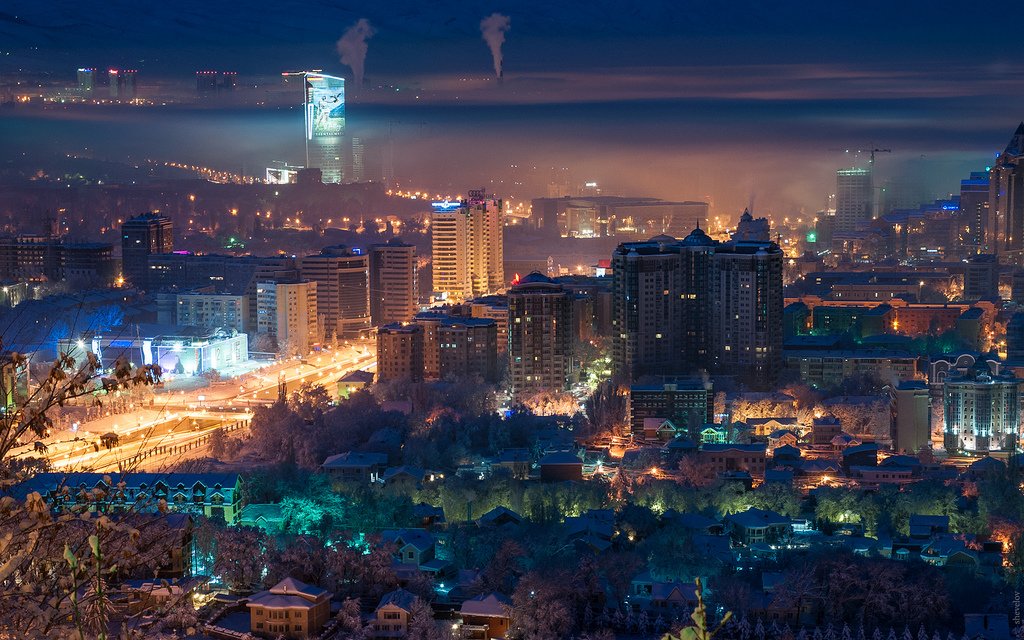The harsh din of my alarm bursts rudely into my dreams and drags me slowly back into the real world.
Yes, 15 minutes before my actual wake up time, I look to my smartphone to ground me from my hazy state, and I slowly come-to by catching up with all the global and personal updates that happened overnight. As I scroll down endless messages, Instagram updates and Facebook notifications I realize that this sentence is supposed to be relatable to all of us, who have a privilege of living in the information technology age.

This transformation is truly global; it impacts everything from the disruption of traditional industries and creation of new ones to the questionable imprint of globalization and changing patterns of personal interactions. In Kazakhstan, these changes not only shape the nature of economy but also have a significant influence on one’s identity and self-image.
Over the past decade, Kazakhstan has witnessed a staggering increase in Internet users from merely 3% in 2005 to more than 55% in 2016. And whilst my grandma is quite an active Facebook user, a majority of Internet users in Kazakhstan are urban millennials located in two major cities — Almaty and Astana.
In fact, the split between rural and urban areas is so prominent that while more than 70% of the urban population has access to the Internet, only 45% of the rural population gets covered by national providers. This issue only highlights the ever-pressing problem of an urban-rural split in Central Asian region.
Having been born and raised in Almaty, the biggest Kazakhstani metropolis, I always had a privilege of being surrounded by clean streets, trendy restaurants and shiny malls. It was only later in life that I have discovered the beautifully constructed image of my hometown not to be a full reflection of the nation.
For most rural Kazakh citizens; having access to clean hot water, heating during winter, education and healthcare is a daily struggle to overcome. Poorly implemented agricultural policies combined with the sudden collapse of the Soviet Union have resulted in poverty and ill health of its rural population. Similarly, limited access to worldwide knowledge in rural regions fosters a pre-existing income inequality and hinders social mobility for the young.
On the other hand, while the Kazakh healthcare system is collapsing with underpaid and overworked doctors and nurses; the inherent kindness in Kazakh culture, combined with the age of social media, has created a unique type of non-profit organisation. In essence, these NGOs consist of online-operated charities such as Dara and Kus Zholy, which are providing people with second-hand clothing and food — and have created crowd-funding pages to help sick children get access to world-class healthcare, along with supporting children with special needs. All this is being made possible because of generous donations from community-minded private citizens, who often live on the brink of poverty themselves. This unique generosity is deeply intertwined within Kazakh traditions, but is also influenced by Kazakh ego and self-image.
“Uyat boladi” is a phrase that I, as a Kazakh woman, grew up hearing on daily basis. This almost always meant the end of a discussion. For a foreign ear this phrase, which is being repeated in each and every single household several times per day, sounds harmless and almost poetic. Yet, its translation — will be shamed — combined with an already self-conscious nature of social media, serves to create harmful effects.
Bigger exposure to Kylie Jenner types on Instagram has fuelled a new wave of insecurities faced by Kazakh women. Now expected not only to be an example of a modest and saint-like bride to all the neighbours, the Kazakh woman is now forced to become two-dimensional: her worth is also determined by the number of likes and comments she gets on an Instagram post. Being constantly pressured to be the perfect Stepford wife with a perfect body and perfect manners; young women enter a vicious self-depreciating cycle fuelled by a stream of negative comments. All the while, they are forever torn by the tug of two polar opposites: the hypersexualised female body, so normalised in the media; and the “Uyat boladi” conservative and patriarchal mindset.
Seeing glorified Western lifestyle on their feed, young people strive for everything Western — from Caucasoid facial features right through to the way they dress and speak. Majority Muslim, Kazakh society is now undergoing a transformation. This comes as no surprise to me; adverts, clinics, and cases of operative adjustments — such as double eyelid plastic surgeries — are becoming omnipresent, not just in Kazakhstan, but throughout the East Asian region as well.
Although harmful to the self-esteem of the young, social media has undoubtedly boosted Kazakh economy. According to CNP Processing, an international business research firm, the e-commerce sector of the economy has generated more than $5million in 2010 on advertising; while overall the sector has generated $300 million in sales in 2012, and the figure has been on the rise ever since. Online businesses such as Lamoda and Chocolife were very quick to spot the untapped potential that a sparsely populated and tech-savvy nation promised. Meanwhile, a niche of independent online retailers mostly operated through Instagram caught onto the wave, and in doing so generated jobs and fostered the country’s economy.
As e-commerce markets grew and online news consumption became conventional, another transformation emerged — Kazakhstan developed a profitable blogger sphere. Facebook’s live streaming allowed independent voices to be heard, while YouTube provided a legitimate and user-friendly platform. One of the most prominent examples of these independent voices is Yerzhan Rashev — a creator and host of the Rashev Show and an occasional live streamer, who not only freely expresses his opinions about the nation’s development but also is explicit about corruption within the branches of government. He champions for transparency, a good moral code, and self-improvement; all delivered in an articulate manner that encourages discussion and further debate (usually in the comment section). Younger comedians — teams Yuframe and Jokeasses, highlight important social issues in a more light-hearted manner, but yet again encourage their audience to be better than the generation of post-Soviet turmoil with its prejudices and “Uyat boladi” mindset.
Social Media is already making its impact on Kazakhstani self-image as young people are becoming more tolerant towards each other’s differences; it also fills them with hope for a better future by bringing the sum of human knowledge in the world to their fingertips — and hopefully by extension helping them to learn to think critically. Social media and the Internet have just started to penetrate the Kazakh market, and there is a lot of progress to be made in terms of digital freedom and censorship of the information. I can’t help but wonder what would the future entail for a young and progressive Kazakh society? Would the progress made in the last decade and the kind inherent in Kazakh culture be enough to create a modern, democratic and open-minded society — or would social media continue to harm self-esteem of the young while also widening the economic inequality between urban-rural populations? Yet again, Kazakhstan is at the crossroads. The question is: what path will the nation choose to take?
